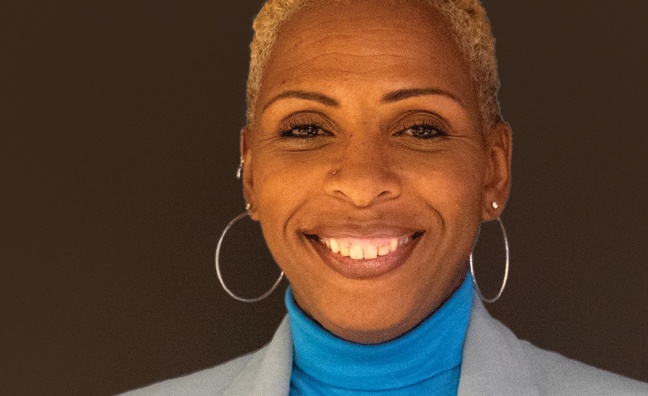As Michelle Escoffery prepares to step down as the first ever PRS Members' Council president, and take on a new role as chair of the Ivors Academy Trust, here's a chance to revisit our Aftershow feature from earlier this year...
Since making waves with R&B trio Truce in the ’90s, Michelle Escoffery has co-written with the likes of Tina Turner, All Saints, Beverley Knight, Liberty X and more. Here, the PRS Members’ Council president looks back, as we discuss breaking boundaries, working with superstars and fighting for songwriters’ rights…
Cathy Dennis and I broke new ground as the only two women signed exclusively to EMI Music Publishing…
“I didn’t grasp what it meant initially. Also, at that time [after Truce disbanded in 1998], they didn’t put top line writers together in the same room. So, as much as we were the two female writers, we never got to work together. Now, you can have 10 people in a room and there are four top line writers. There was this idea of separating us: ‘Well, Cathy’s pop and you’re more R&B…’ But my thing was to try everything at least once and see how I liked it, or if I was any good at it. One of the things I always tell [songwriters] is that only writing in one genre limits your earning capacity. At PRS, we’re really passionate about being able to inform and educate our members on profile, income and things like that.”
Liberty X’s Just A Little was originally written to pitch to Tom Jones…
“I wrote it with George and John Hammond-Hagan [The Big Pockets]. The concept behind the song was about a woman that didn’t really know what she had got. In the end, it got put on hold for Anastacia, so we were all excited about that. Then we got a call from Malcolm Dunbar at V2, he was A&R at the time for Liberty X – he said, ‘I really, really want this song.’ I think the thing that swung it was we managed to negotiate that we would produce the song. Liberty X were great to work with, they came to my house and sang the song. We worked out who was going to sing what and then five days later we were in the studio. It went straight to No.1, so everything aligned.”
There’s a fine art to keeping your cool around artists you love…
“In 2004, I met D’Angelo and I absolutely choked. It took me a whole two days to even say hello, first of all. I was working with [Artful Dodger’s] Mark Hill in New York and we were in Manhattan staying at the W. I saw D’Angelo, I was like, ‘I’m sure that’s him.’ Then the next day he got in the lift and I couldn’t even speak. Eventually I said, ‘I’m a songwriter, I really admire you.’ He was very gracious, he just said, ‘Great!’ He asked my name, I told him, and that was it. I thought, ‘Is that all you could have said, Michelle?!’”
A lot of great songwriters have left the industry because they can’t make a living
Michelle Escoffery
Working with the greats always blows me away…
“Stevie Wonder knows people by their voice and I thought that was brilliant. He learns everyone’s names and remembers them. It’s like, ‘Hi Stevie,’ ‘Oh, hey Michelle,’ and you think, ‘How do you do that?!’ I also performed with George Michael, who was absolutely a perfectionist. We were in a choir and the rehearsals were so intricate. If one person sang something slightly wrong, George would say, ‘Who’s that? Hold on, that wasn’t right.’ Everybody just wanted to get it right, it was an amazing experience.”
One of the things I challenged PRS on when I joined was diversity, equity and inclusion…
“We had no people of colour in senior management. If we are representing such a broad membership, surely that should be reflected in the organisation? I think we’ve progressed a lot. We had a Black music relationship manager, Jacqueline Pelham-Leigh, who has been promoted to business development lead, and now we’ve got Kenny Barber [relationship manager], so things are moving. We’ve got a fantastic director of talent, culture and experience, Janeace Thompson; she has been amazing with training staff on inclusion, psychological safety and being open to collaboration. That has a massive effect externally as well.”
Without the song, the music business wouldn’t exist…
“For a lot of songwriters, the days of getting a massive advance and being able to live off their advance while being creative are gone. We need a new model that supports songwriters so they’re not worrying or running to Amazon or Tesco to do a shift because they can’t make ends meet. We have to take a really long hard look at how we are supporting the people that are making the songs, to sustain their lives – not just their careers. A lot of great songwriters have left the industry, because they can’t make a living. It’s work, it’s not a hobby. We understand that there are risks and no real guarantees of your song getting out there. But we still have to create, so we should be paid adequately to do so.”
Interview: Colleen Harris










